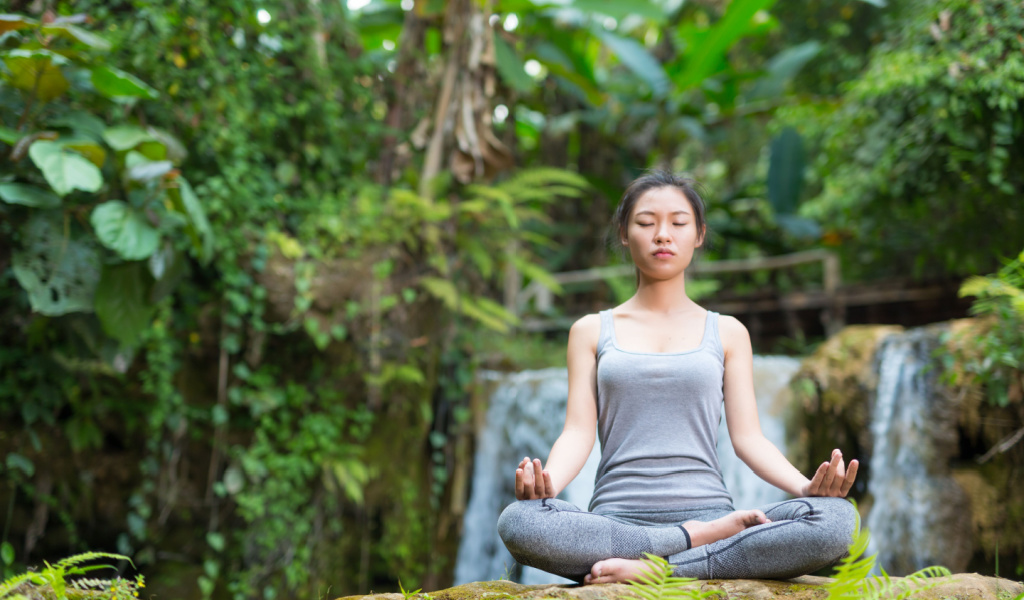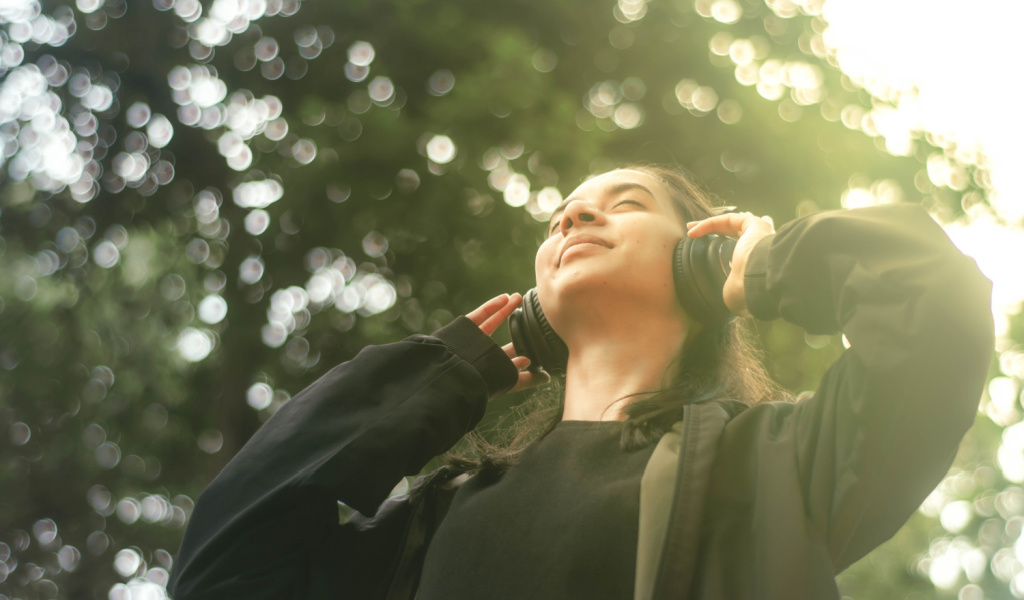We’ve all become used to being stuck indoors, staring at screens all day, and rarely taking the time to go outside and enjoy the bounties of nature. The sad thing about this is that we’re also missing out on the number of benefits that spending time in nature can provide us.

From stress relief and relaxation to better physical health, the great outdoors has been scientifically proven to improve human health. Here are some of the most prominent health benefits of “forest bathing” or being in nature:
Stress Relief
Our lives have become so fast-paced and highly stressful that we struggle to find mental peace. When you feel particularly anxious, spending time in nature without distractions can help you calm down. Nature can help you do that.
Suppose you are able to take a day off to go on a hike or take a beach day; great! Otherwise, even a 15-minute walk in your local park or a yoga session in your backyard can help get your heart pumping and blood flowing – triggering the production of serotonin, lowering stress, and making you a happier person overall!
Vitamin D Therapy
Sunlight is one of the most accessible sources of vitamin D. According to research, just a 15–20-minute walk in the sun can help you get the recommended dose of vitamin D. Not only does this enhance physical health by strengthening bones through aiding in calcium absorption and reducing the risk of serious illnesses such as cancer, multiple sclerosis, and even cancer, but it also improves mental health as vitamin D deficiency is a catalyst for anxiety disorders.
Improves Overall Health
According to research, being in nature can do wonders for your immune system and overall health. One study found that being outdoors can help reduce inflammation, which is the cause behind several health conditions, from autoimmune diseases and depression to diabetes and cancer.
Another way your body benefits from being outdoors is by helping it regulate sleep patterns, avoiding insomnia, and the number of issues it can bring by regulating melatonin production. The University of Colorado conducted a study that found a harmless bacteria in the soil called Mycobacterium vaccae. This natural antidepressant improves metabolism, serotonin production, cognitive function, and overall mood. This bacterium has also been found to decrease inflammation.
Oxygen Therapy
You breathe in oxygen every day, but it’s most likely that you’re also breathing in a plethora of unwanted gasses along with it, thanks to pollution. Being in nature will help you get a good dose of the real thing, which helps your body regulate serotonin, promoting happiness and well-being. Plus, your body doesn’t have to work as hard to breathe in the fresh air, which helps lower your heart rate and blood pressure.
The air in a natural setting such as a lake or mountain has negative iron-rich oxygen, around 100,000 per cubic centimeter, which has a soothing effect on your mind and body. For comparison, the oxygen in a metropolitan city street may typically have a negative ion count of less than 100 per cubic centimeter.
Better Vision
Staring at screens all day can be incredibly harmful to your eyesight, so going outdoors gives them a break from the blue light emitted from devices. An Australian study even found that children who spent more time outdoors had a lower risk of developing myopia when they grew older.
Better Short-Term Memory
According to a study conducted at the University of Michigan, students who had regular nature walks found it easier to retain information. This showed that spending time in nature helped improve their short-term memory power.
Enhances Creativity
Scientists have found that being outdoors can help increase creativity – and it’s not hard to imagine why! There’s nothing more fascinating or more beautiful than nature itself. Being outdoors gives you a chance to observe the colors, shapes, and smells of nature without being bombarded by distractions of daily life.
Things to Do in Nature That Can Help You Relax
It’s clear that being in nature has a plethora of benefits for your mind and body. Here are a few simple ways to destress in nature, as recommended by the American Heart Association:

Experience the Sunrise/Sunset
There is something magical about witnessing the sun rising or going down. And even though it’s a daily occurrence, we rarely make time to sit and watch it. Make plans to wake up early to view the sunrise or finish work before sunset. Hike up to the nearest hilltop or head down to the beach to watch this spectacle of nature. It’s sure to be a cathartic experience that will help you destress!
Take a Relaxed Walk
Head to your local park, nature preserve, or hiking trail and take a relaxed walk. Let the voices in your head settle down and focus on the elements around you while breathing fresh air. Exposure to sunlight can increase serotonin production, and did you know that certain plants even release immunity-boosting compounds in the air?
Have a Beach Day
Is there a place more relaxing than the beach? The sound of the waves, fresh air in your lungs, scenic views, sand between your toes, and nothing to do but sit and relax – this is the perfect setting for destressing and relaxation.
Take a Trip to the Mountains or Lake
The mountains are another scenic location where you can sit back and relax while having nothing else to do other than breathe in the fresh air and beauty around you. If you have a lake near your location, it can give you a very similar experience. You might even enjoy a soothing dip in the warm waters!
Meditate Outdoors
Meditation, or practices that promote it, like yoga, can be incredibly beneficial for stress relief and relaxation. Taking these activities outdoors, instead of a yoga studio, can be all the more valuable, given that you can also enjoy the benefits of nature. Find a yoga class in your local park or a quiet natural spot where you can meditate.
Go Camping
Camping is the ideal activity to help you disconnect from all the distractions in your life and become one with nature. Set up a campfire, pitch a tent, and roast some marshmallows. If you can’t go camping, a lovely picnic at the local park or garden may be a good alternative. You can even take a friend or family member along for some company – there’s no better place to connect with someone!



